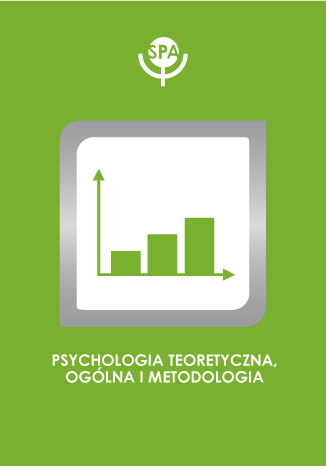Array
(
[id] => 666
[date] => 2019-06-30
[doi] =>
[title] => Na pograniczu prawa i psychologii – nowe obszary współpracy w teorii i praktyce
[title_en] => ON THE BORDER-LINE OF LAW AND PSYCHOLOGY – THE NEW AREAS OF THE COOPERATION IN THEORY AND PRACTICE
[authors] => Józef Krzysztof Gierowski,
[abstract] => Traditional definitions of law psychology limit its subject to the problems connected with making the law expertise. Nowadays this approach doesn’t seem to be satisfying any more. Both the psychologists and the lawyers emphasize that it doesn’t include all areas of using the psychological knowledge to solve the problems lying on the border of psychology and law. To describe the whole area of these problems, the wide formula “psychology and law” has been introduced to accentuate the theoretical and practical links between psychology and law. There is a variety of law which solutions is searched in psychology. This fact caused the separation of the distinct specializations in psychology. The different criteria of this selection can be mention: According to the stage of the proceeding, in which the psychologist takes part, we can distinguish for example: investigating psychology which is connected with the psychological rules of investigation, establishing the strategy of proceeding and the obtainment of personal evidence, the decision psychology, which assess the mechanism of making decisions in court or the penitentiary psychology, which concentrates on the analysis of prisoners’ functioning and behaviors. On the basis of the criminal psychology or the family psychology we can find the evidence problems, in solving which the psychologists is highly involved. The rapidly developing law psychology worked out the specific methodology and research procedures, which take into account the characteristic of the law problems. These methods must be different in case of young and adults crime perpetrators, witness or so called the family matters. The law psychology must search the inspiration in different part of psychology and base on different theoretical constructs. The future and perspectives of law psychology depend on the fact how effectively it will be able to apply the general psychology output into the law practice as well as it will be able to improve its methods and research procedures.
[abstract_en] => Traditional definitions of law psychology limit its subject to the problems connected with making the law expertise. Nowadays this approach doesn’t seem to be satisfying any more. Both the psychologists and the lawyers emphasize that it doesn’t include all areas of using the psychological knowledge to solve the problems lying on the border of psychology and law. To describe the whole area of these problems, the wide formula “psychology and law” has been introduced to accentuate the theoretical and practical links between psychology and law. There is a variety of law which solutions is searched in psychology. This fact caused the separation of the distinct specializations in psychology. The different criteria of this selection can be mention: According to the stage of the proceeding, in which the psychologist takes part, we can distinguish for example: investigating psychology which is connected with the psychological rules of investigation, establishing the strategy of proceeding and the obtainment of personal evidence, the decision psychology, which assess the mechanism of making decisions in court or the penitentiary psychology, which concentrates on the analysis of prisoners’ functioning and behaviors. On the basis of the criminal psychology or the family psychology we can find the evidence problems, in solving which the psychologists is highly involved. The rapidly developing law psychology worked out the specific methodology and research procedures, which take into account the characteristic of the law problems. These methods must be different in case of young and adults crime perpetrators, witness or so called the family matters. The law psychology must search the inspiration in different part of psychology and base on different theoretical constructs. The future and perspectives of law psychology depend on the fact how effectively it will be able to apply the general psychology output into the law practice as well as it will be able to improve its methods and research procedures.
[keywords] => law border-line, psychology border-line, theory cooperation, practice cooperation
[keywords_en] => law border-line, psychology border-line, theory cooperation, practice cooperation
[file_path] => /files/articles/2009-15-na-pograniczu-prawa-i-psychologii-nowe-obszary-wsppracy-w-teorii-i-praktyce.pdf
[okladka] => psychologia_teoretyczna_ogolna_i_metodologia.jpg
[rocznik] => Rocznik: 2009 Tom: 15 Numer: 2
[strony] => 277-293
)










 Pobierz pełny tekst
Pobierz pełny tekst



